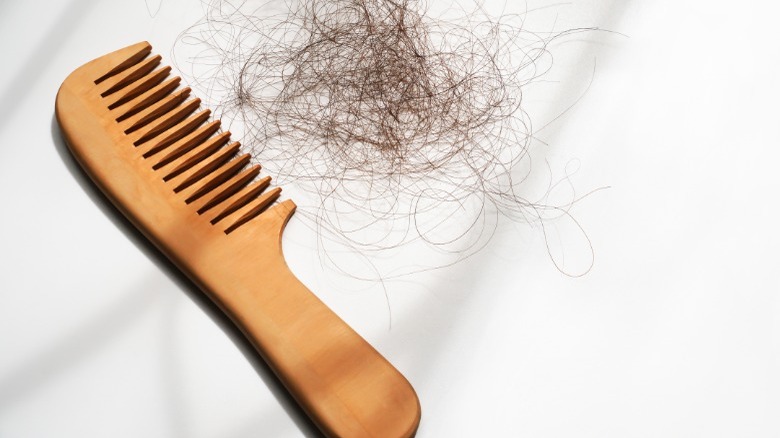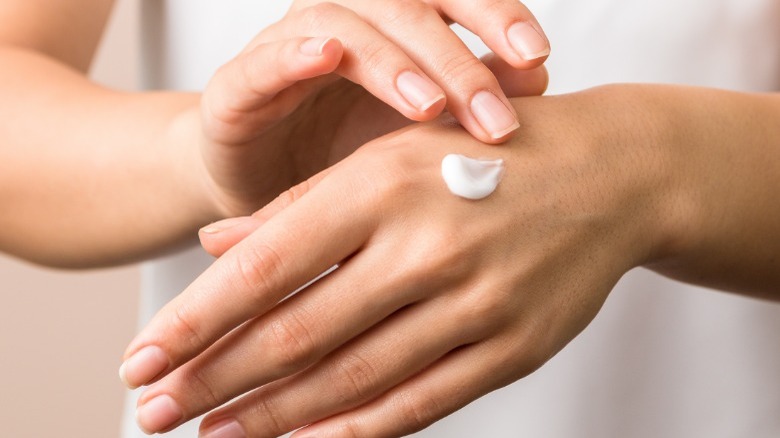How Chemotherapy Can Affect Your Skin
If you or someone you know has ever undergone chemotherapy, you're not alone. Over 1 million Americans experience chemotherapy or radiation annually, according to the Centers for Disease Control and Prevention (CDC).
While many of us are familiar with the term chemotherapy and that it can be an intense process, what exactly is it?
First, chemotherapy has a pretty fascinating history. Though first developed in the early 20th century, the credit for the effective use of chemotherapy often goes to Dr. Sidney Farber, an American pediatric pathologist at Boston Children's Hospital in the 1940s. After becoming saddened and frustrated by seeing so many children dying from leukemia, a type of blood cancer that most health experts thought was impossible to treat at the time, Dr. Farber began to pursue cancer research in the hopes of developing an effective treatment, and hopefully, a cure, according to Blood Cancer UK. Dr. Farber started by experimenting with a drug called aminopterin and discovered that it was effective in killing cancer cells. This breakthrough led to the development of other chemotherapy drugs, including methotrexate, which is lower in toxicity and is, in fact, still used today to treat cancer patients.
In the early days, chemotherapy drugs were highly toxic, reliably causing many unpleasant side effects. Nonetheless, with increased knowledge, researchers have developed newer drugs that are not only more effective but also have fewer side effects. Today, chemotherapy is a vital part of cancer treatment for those with serious cases and has helped save countless lives.
What are still some of the side effects of chemotherapy?
Despite the advances that scientists have made, those who undergo treatment may still experience side effects due to chemotherapy.
Chemotherapy works on active cells, which include both cancer cells and healthy cells. Because cancer cells grow faster than healthy cells, chemotherapy attacks cancer cells more easily. Unfortunately, healthy cells will often get in the line of fire of the treatment. As a result of chemotherapy damaging these healthy cells, certain side effects may follow. The types of side effects you may experience are going to be related to the type of chemotherapy treatment your doctor has prescribed. In other words, the side effects depend on the nature of the drugs you are taking, according to the American Society of Clinical Oncology (ASCO).
That said, there are certain types of chemotherapy side effects that are fairly common. For example, if you are undergoing chemotherapy treatment, there is a good chance that you will experience fatigue at some point. Hair loss is another common side effect, though not all patients will experience it. When patients do have hair loss, the hair may come out in small clumps at first with hair loss intensifying a month or so into the treatment, per ASCO.
The experts at National Health Service UK explain that other possible side effects of chemotherapy include nausea, vomiting, loss of appetite, skin bruising, nose bleeds, problems with memory, difficulty concentrating, sleep issues, and changes to the skin and nails.
How to treat skin issues caused by chemotherapy
If you are undergoing chemotherapy and experiencing issues with your skin or nails, the good news is that these issues are often mild and treatable.
Depending on the kind of chemotherapy treatment you are receiving, your skin may feel dry or itchy, peel, or turn reddish or darker. You may also notice that you are more easily sunburned or tend to develop minor rashes due to increased photosensitivity. Your nails may also grow darker or have a tendency to crack, and you may find that your cuticles are more sensitive, per the National Cancer Institute.
Talk to your doctor or health care team before taking steps to address any skin issues, but chances are there is some form of relief they will recommend that you can apply safely. For example, using doctor-recommended skincare products, such as milder soaps may help reduce your discomfort. Also, avoiding creams that contain any alcohol or fragrance may help since these chemicals can exacerbate dryness and itchiness. Additionally, you can help reduce discomfort by taking shorter showers or baths and using warm as opposed to overly hot water.
Although you should avoid being out in the sun while undergoing chemotherapy, that isn't always possible, so the experts at City of Hope advise that you always apply sunscreen with an SPF of 30 or more, stick to long-sleeve shirts and try to avoid being outdoors when the sun is at its strongest.
In addition to these measures, remember to treat yourself to whatever else you need to support your comfort during this time.



